What is Comfort Heating and Cooling?
Comfort heating and cooling systems are designed to provide a comfortable and consistent indoor environment by regulating temperature and humidity throughout the year. These systems are essential for maintaining your home’s air quality, comfort levels, and overall energy efficiency. From the chill of winter to the heat of summer, comfort heating and cooling systems ensure that your indoor temperature remains at a level that supports your lifestyle.
The comfort provided by these systems goes beyond just temperature control; they also contribute to maintaining optimal humidity levels, air purification, and airflow. Investing in a high-quality comfort heating and cooling system not only improves the overall comfort of your home but also enhances your health and well-being.
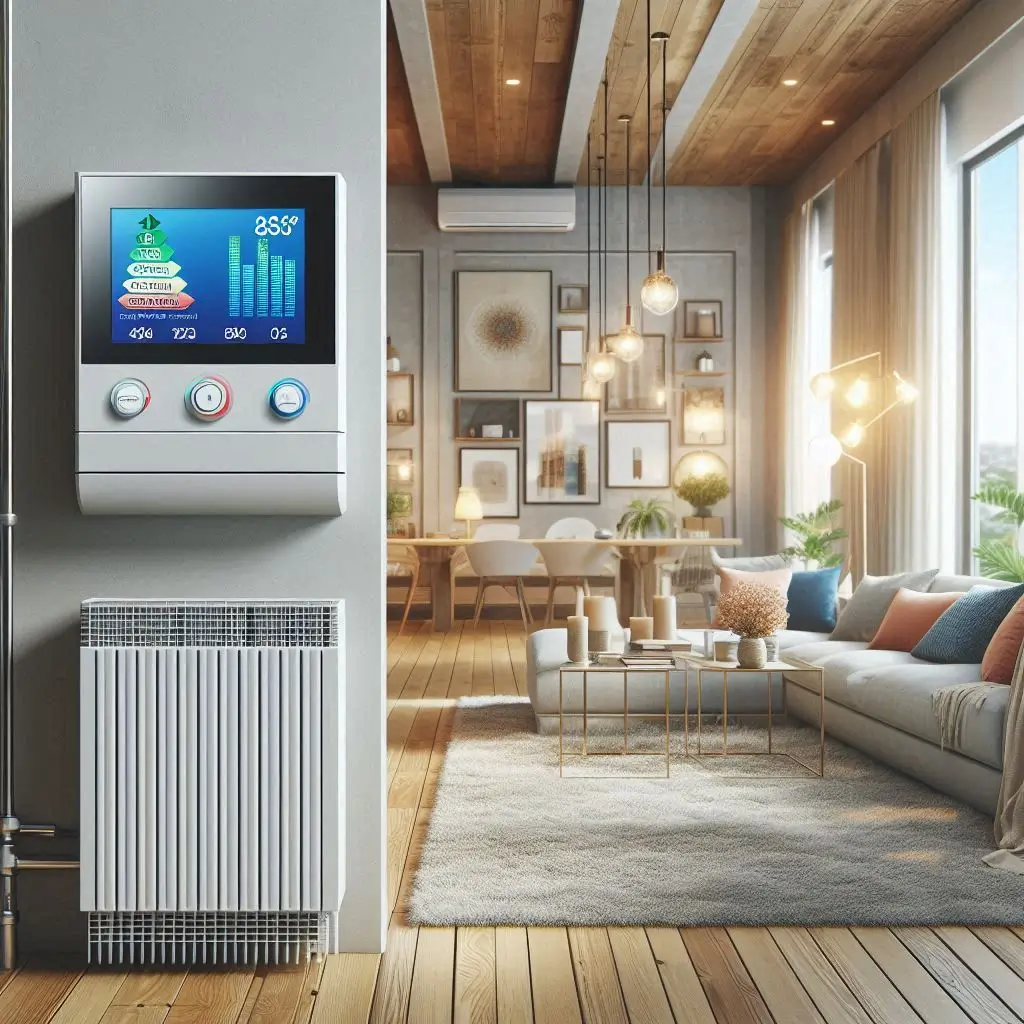
Understanding the Importance of Comfort Heating and Cooling
Comfort heating and cooling are crucial for more than just seasonal temperature control. A well-maintained HVAC system is responsible for ensuring that your home remains comfortable regardless of external weather conditions. The importance of a reliable heating and cooling system cannot be overstated, especially in regions with extreme weather patterns.
-
Health Benefits: Maintaining a stable temperature and humidity level can help reduce the growth of mold and allergens, which can negatively impact respiratory health. Good air circulation ensures fresh air, reduces the risk of indoor pollution, and promotes a healthier living space.
-
Energy Efficiency: Modern comfort heating and cooling systems are designed to be energy-efficient, lowering your utility bills. By using advanced technology, these systems optimize performance and minimize energy waste, making them both cost-effective and environmentally friendly.
-
Longevity of Appliances and Furniture: Extreme temperatures can damage household appliances, furniture, and even the structural integrity of your home. Comfort heating and cooling systems help mitigate the risk of damage caused by temperature fluctuations and humidity.
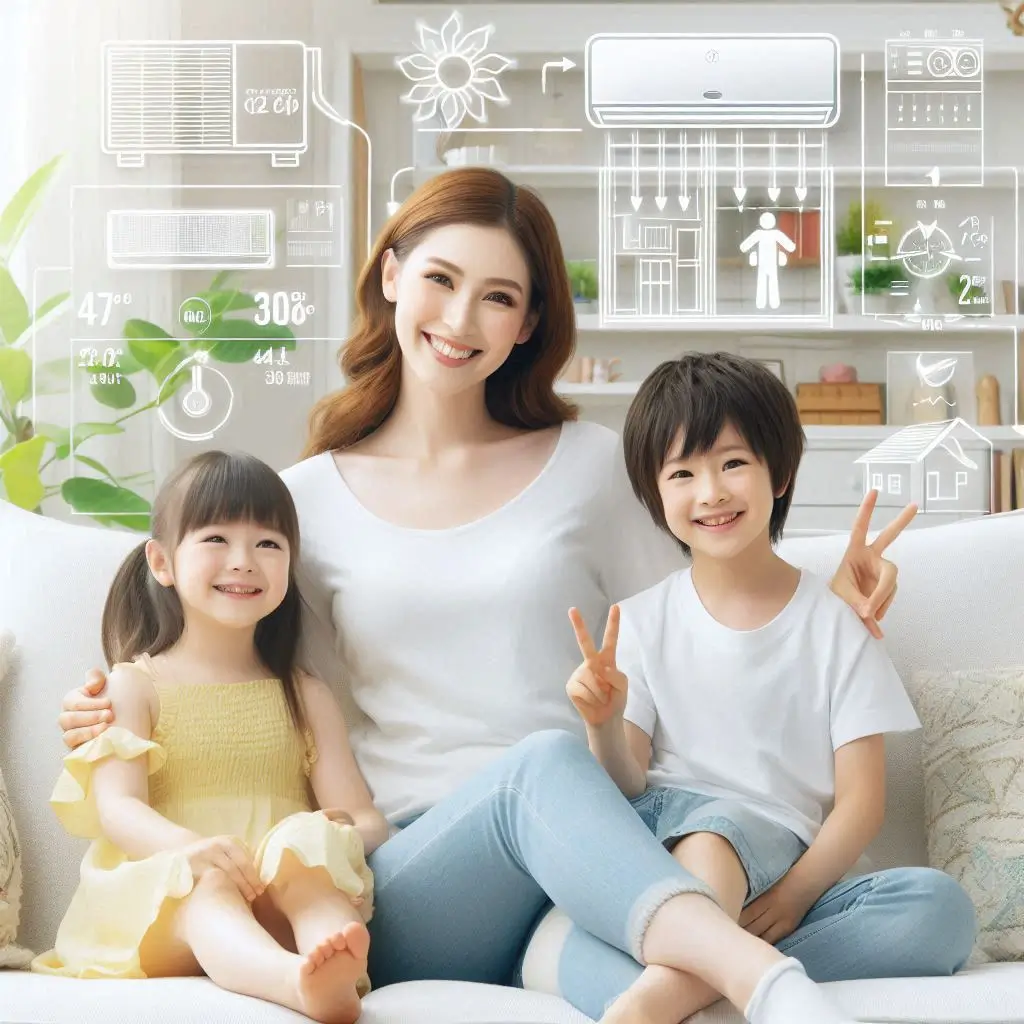
How Comfort Heating and Cooling Improves Your Home’s Indoor Environment
The impact of comfort heating and cooling systems goes beyond just keeping your space warm in the winter and cool in the summer. These systems also significantly contribute to improving the overall indoor environment, which includes air quality, humidity control, and maintaining a constant airflow throughout your home.
-
Air Quality Improvement: Many comfort HVAC systems come equipped with advanced filtration options that help remove dust, allergens, and other pollutants from the air. This leads to cleaner air, reducing the risk of asthma, allergies, and other respiratory issues. Regularly maintaining the system ensures that the filters are working at their best.
-
Humidity Control: Comfort heating and cooling systems also help regulate humidity, which is essential for indoor air quality. Excess humidity can lead to mold growth, while low humidity can cause dry skin and discomfort. HVAC systems ensure that your home maintains optimal humidity levels year-round.
-
Improved Comfort and Consistent Airflow: With a well-maintained system, you won’t have to deal with sudden temperature fluctuations or uneven airflow. The system works efficiently to keep every room in your home at a consistent temperature, ensuring comfort for all family members, no matter where they are in the house.
-
Energy Savings: Modern comfort HVAC systems are designed with energy-efficient features such as programmable thermostats and zoning systems. These allow you to set temperatures for different areas of your home, reducing the need for overcooling or overheating and thus cutting down on energy consumption.
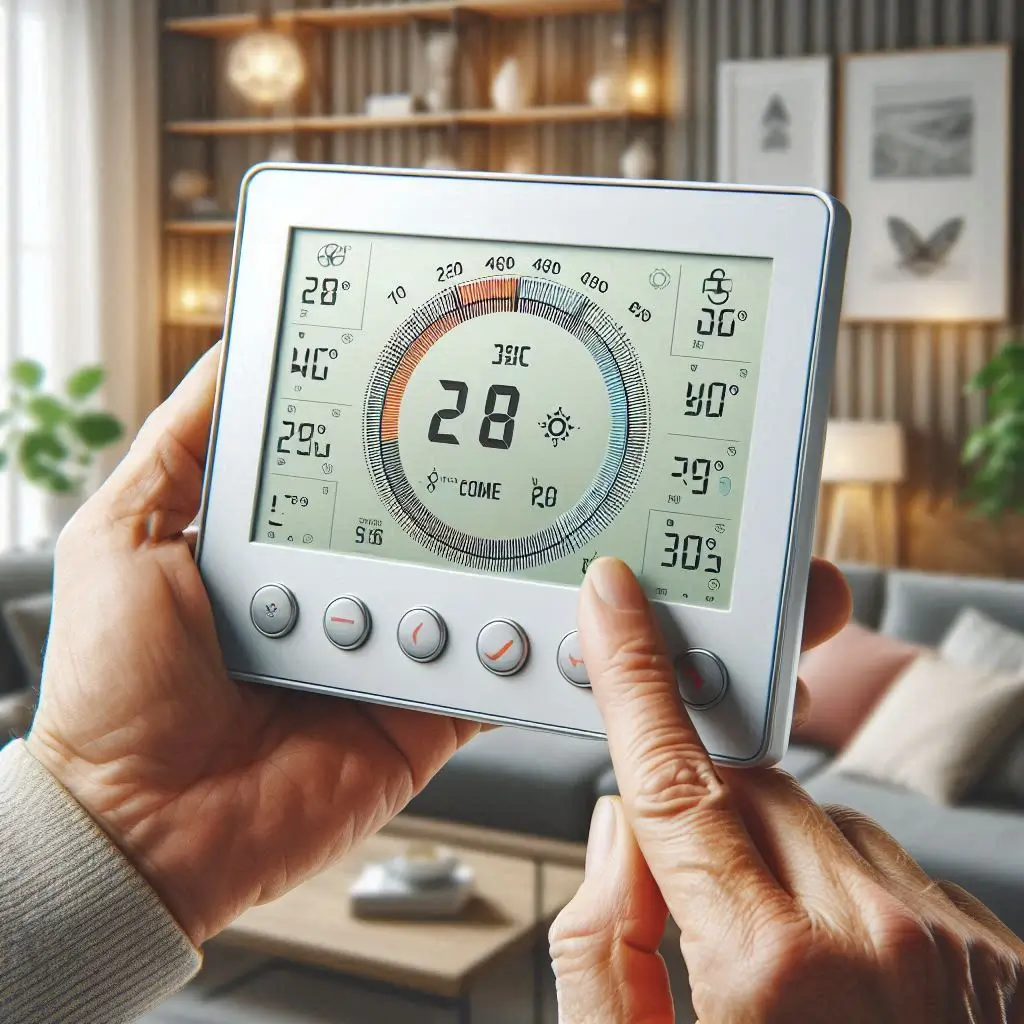
Benefits of Comfort Heating and Cooling Systems
Comfort heating and cooling systems provide more than just the ability to adjust your home’s temperature. They offer a wide range of benefits that contribute to a healthier, more comfortable, and energy-efficient living environment. When installed and maintained properly, these systems help improve indoor air quality, reduce energy consumption, and provide long-term savings.
Whether you’re looking to save money on energy bills or improve the comfort of your home, investing in a high-quality HVAC system is a smart decision. These systems ensure consistent indoor temperatures, better air quality, and efficient energy usage throughout the year, regardless of the weather outside.
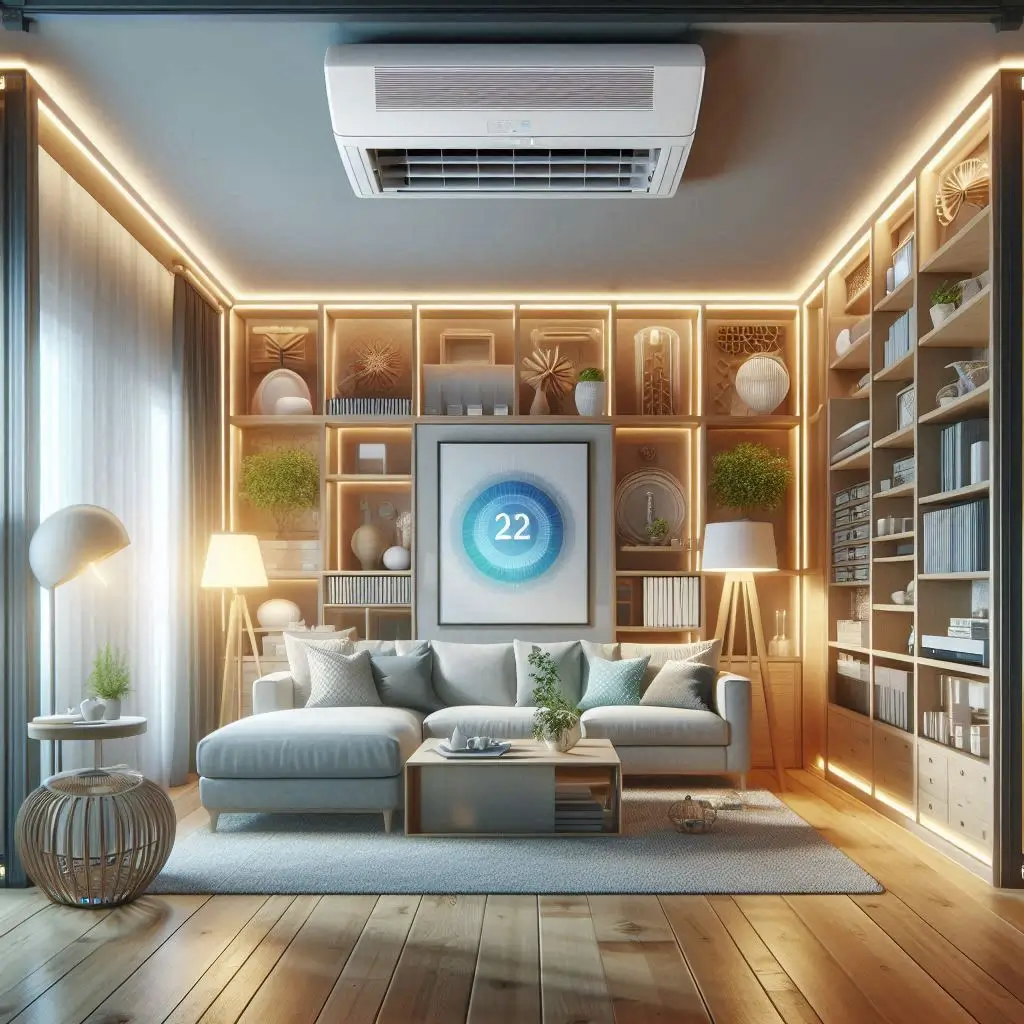
Energy Efficiency and Cost Savings with Comfort HVAC Systems
One of the most significant benefits of modern comfort heating and cooling systems is their energy efficiency. These systems are designed to minimize energy usage while providing optimal comfort for your home. They are engineered with advanced technology that helps lower heating and cooling costs without sacrificing performance.
-
Energy-Efficient Components: Many newer HVAC systems use energy-efficient components, such as variable-speed motors, that adjust the speed of airflow based on the heating or cooling needs of your home. This reduces unnecessary energy consumption and ensures the system only uses as much energy as needed to maintain a comfortable indoor temperature.
-
Programmable Thermostats: Most comfort HVAC systems come with programmable thermostats, allowing homeowners to set specific temperatures for different times of the day. By adjusting the temperature when you’re away or asleep, you can reduce energy usage and lower your monthly utility bills. These thermostats also help prevent energy waste by automatically adjusting settings based on your home’s occupancy schedule.
-
Sealing and Insulation: Proper sealing of doors, windows, and ducts is essential for maximizing energy efficiency. A well-insulated home prevents the loss of heat or cold air, which means your HVAC system doesn’t have to work as hard. This reduces the load on the system, lowering energy consumption and saving you money on your energy bills.
-
Lower Utility Bills: Energy-efficient HVAC systems use less electricity to cool or heat your home, leading to significant savings over time. Additionally, many utility companies offer rebates or incentives for installing energy-efficient HVAC systems, further reducing the initial investment costs.
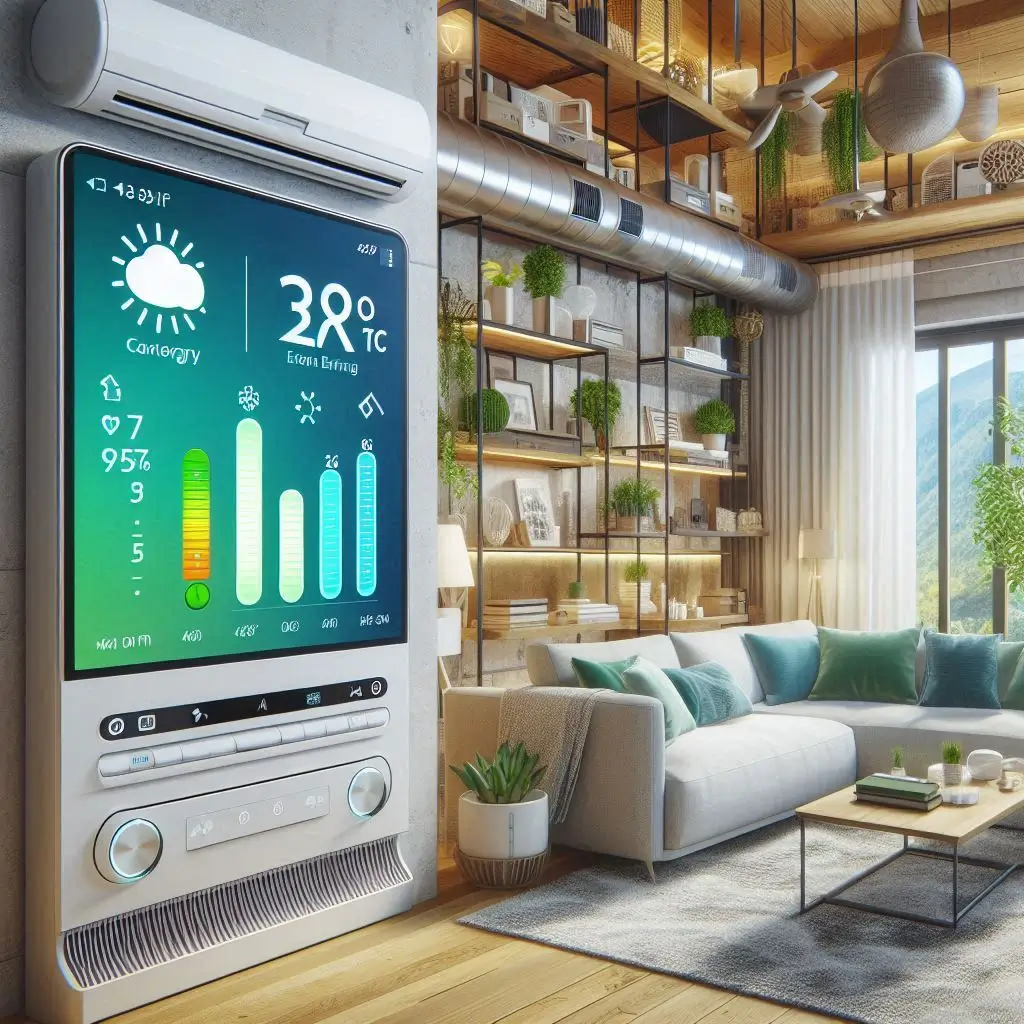
Long-Term Advantages of Regular HVAC Maintenance for Comfort Heating and Cooling
Regular maintenance of your comfort heating and cooling system is essential for ensuring it operates at peak efficiency and delivers long-term benefits. Routine inspections and tune-ups help prevent costly repairs, improve energy efficiency, and extend the lifespan of the system. Here are some key long-term advantages of regular HVAC maintenance:
-
Improved Energy Efficiency: Over time, dirt and debris can accumulate in your HVAC system, causing it to work harder and use more energy. Regular maintenance ensures that the system is cleaned and calibrated to run efficiently. This reduces energy consumption, leading to ongoing cost savings.
-
Prolonged System Lifespan: An HVAC system that is regularly maintained lasts longer than one that is neglected. A well-maintained system can provide reliable service for 15-20 years or more. Regular checks ensure that all parts are functioning correctly, and potential issues are identified before they cause major damage to the system.
-
Enhanced Indoor Air Quality: Regular maintenance helps keep filters, ducts, and vents clean, improving the overall air quality in your home. A well-maintained system reduces the buildup of dust, allergens, and pollutants, providing cleaner air and reducing the risk of respiratory issues for your family.
-
Fewer Repairs and Breakdowns: Proactive maintenance helps prevent system failures. By identifying issues early on and addressing them before they become major problems, you can avoid expensive repairs and breakdowns. Regular maintenance keeps the system in good working order, reducing the likelihood of emergency repairs.
-
Comfortable Home Environment: Regular HVAC maintenance ensures that the system operates quietly and efficiently, maintaining a consistent temperature throughout your home. This improves the overall comfort of your living space, ensuring that you’re always comfortable, no matter the season.
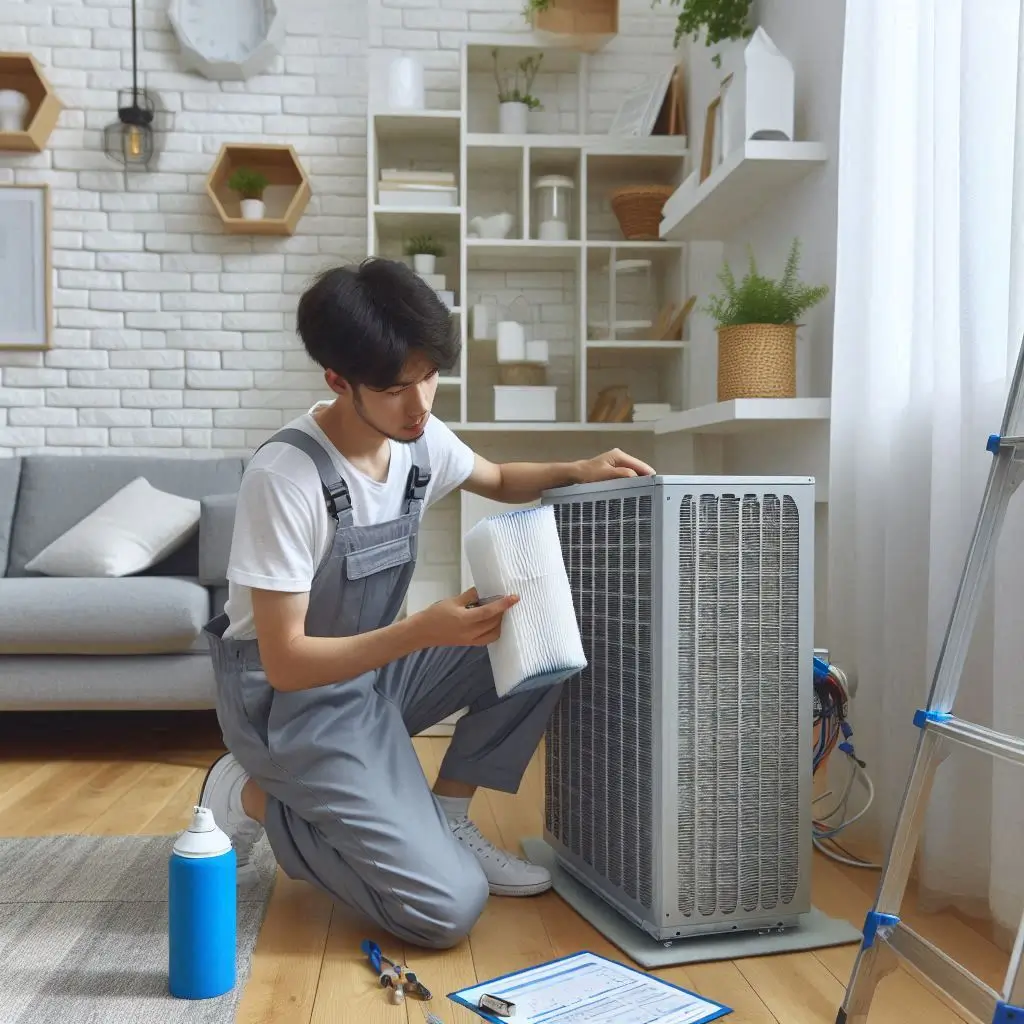
How Comfort Heating and Cooling Systems Work
Comfort heating and cooling systems operate using advanced technology to maintain an ideal indoor environment. These systems are designed to regulate the temperature, humidity, and air quality of your home, ensuring that you remain comfortable throughout the year, no matter the weather outside. The effectiveness of these systems relies on their components working together to provide consistent comfort.
At their core, comfort HVAC systems use principles of thermodynamics to heat or cool the air within your home, maintaining an ideal environment that enhances comfort and energy efficiency. Understanding how these systems work is essential for homeowners who wish to make informed decisions about their heating and cooling needs.
The Technology Behind Comfort Heating and Cooling Systems
Comfort heating and cooling systems rely on cutting-edge technology to efficiently regulate indoor temperature and air quality. The core technology behind these systems revolves around the use of heating elements, cooling coils, compressors, and advanced sensors. Here’s a breakdown of the key components and technologies involved in making comfort HVAC systems effective:
-
Thermodynamic Principles: Comfort heating and cooling systems operate based on the principle of heat exchange. In simple terms, these systems either absorb heat from the indoor air to cool it or release heat to warm the air. Air conditioners and heat pumps use refrigerants that transition between gas and liquid states, facilitating the transfer of heat.
-
Compressor and Evaporator Coils: The compressor is responsible for circulating the refrigerant through the system, compressing it to a high pressure and then releasing it to cool the home. The evaporator coils absorb heat from the indoor air, lowering the temperature, while the condenser coils release this heat outside.
-
Energy-Efficient Motors: Modern HVAC systems use variable-speed motors that adjust the airflow based on the heating or cooling needs of the home. These motors use less energy and operate more quietly than traditional fixed-speed motors.
-
Sensors and Smart Thermostats: Many comfort HVAC systems are equipped with sensors and smart thermostats that monitor the temperature and adjust the system accordingly. These sensors help optimize the performance of the system by ensuring it runs only when necessary, reducing energy waste.
-
Zoning Systems: Zoning systems allow for customized temperature control in different areas of the home. This technology uses dampers in the ducts to control airflow to specific rooms, providing energy-efficient comfort and preventing overcooling or overheating certain areas.
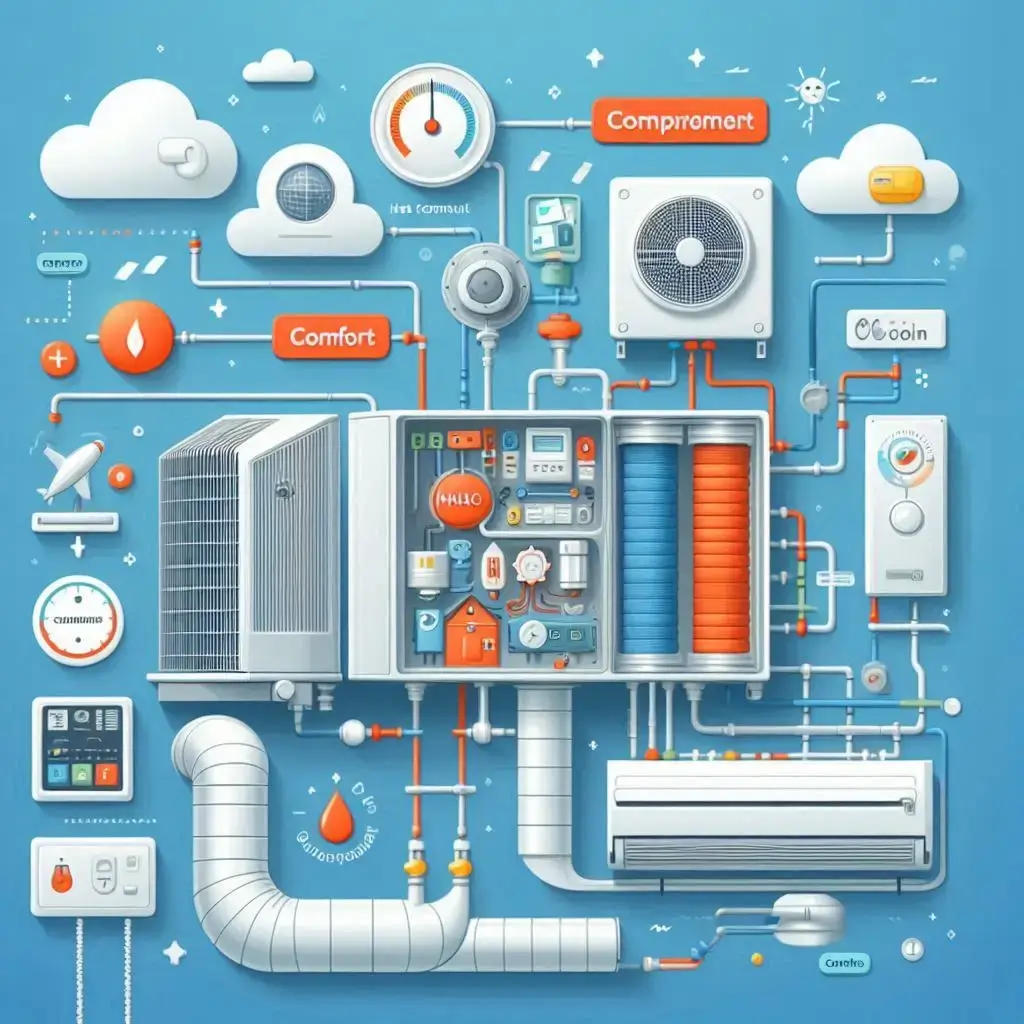
Different Types of Comfort HVAC Systems for Your Home
Comfort HVAC systems come in various types, each designed to meet specific needs, depending on your home’s size, layout, and climate. Understanding the different types of HVAC systems can help you choose the best solution for your home’s heating and cooling requirements.
-
Central Air Conditioning and Heating Systems: Central HVAC systems are the most common type of comfort systems. They use a network of ducts to distribute cool or warm air throughout the home. These systems often include a furnace for heating and an air conditioner for cooling, all controlled by a central thermostat. Central systems are ideal for larger homes that require consistent temperature control across multiple rooms.
-
Ductless Mini-Split Systems: Ductless systems are a great choice for homes without ductwork or for those looking for a more energy-efficient solution. These systems consist of an outdoor unit connected to one or more indoor air handlers that provide heating and cooling to individual rooms. Ductless mini-split systems are perfect for smaller homes or spaces where room-by-room control is necessary.
-
Heat Pumps: Heat pumps work as both heating and cooling systems, offering a year-round solution for comfort. During the colder months, a heat pump extracts heat from the outdoor air and transfers it inside, and during the warmer months, it works like an air conditioner, removing heat from the indoor air. Heat pumps are energy-efficient and ideal for moderate climates.
-
Geothermal Heating and Cooling Systems: Geothermal systems use the earth’s natural heat to provide energy-efficient heating and cooling. These systems are more expensive to install but offer long-term savings due to their low operating costs. Geothermal systems are highly effective in areas with extreme temperatures and are ideal for homeowners looking for sustainable, green energy solutions.
-
Hybrid Systems: Hybrid HVAC systems combine a traditional furnace with a heat pump to provide the benefits of both heating methods. These systems automatically switch between electricity and gas to maximize energy efficiency and comfort. Hybrid systems are ideal for homes in areas with fluctuating temperatures.
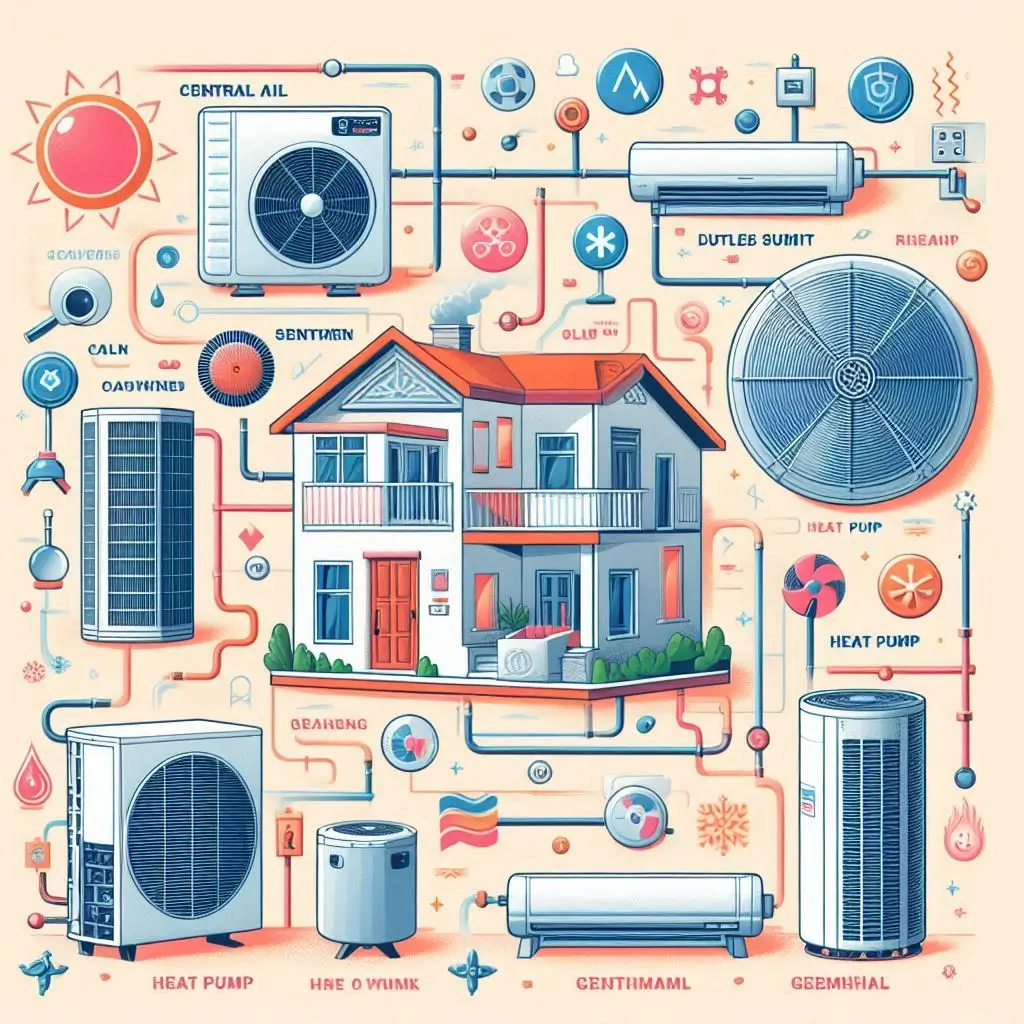
Installation and Maintenance of Comfort Heating and Cooling Systems
Proper installation and routine maintenance are essential to ensure that your comfort heating and cooling system operates efficiently and lasts for years. A professional installation guarantees that the system is set up correctly, while routine maintenance keeps it running smoothly and at peak performance. In this section, we will explore the importance of professional installation and the value of regular maintenance for optimizing the performance of your HVAC system.
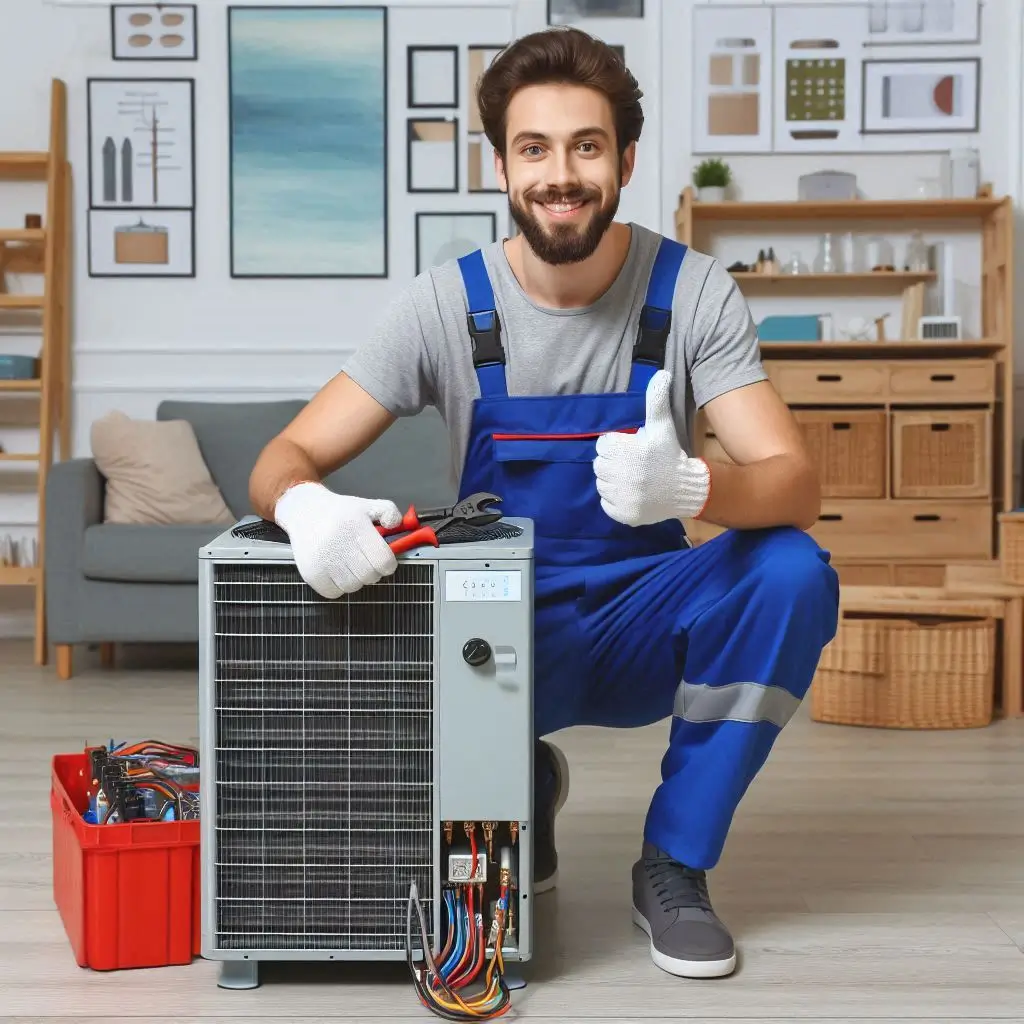
Professional Installation Services for Comfort Heating and Cooling Systems
Professional installation services are crucial for the effective operation of your comfort heating and cooling system. A qualified HVAC technician ensures that the system is installed correctly, optimized for energy efficiency, and meets the specific needs of your home. Here are the key benefits of professional HVAC installation:
-
Proper Sizing and System Selection:
HVAC systems need to be properly sized to effectively heat and cool your home. An experienced technician will assess your home’s square footage, insulation, and climate to recommend the ideal system that balances comfort and energy efficiency. Over-sized or under-sized systems can lead to poor performance, higher energy bills, and frequent breakdowns. -
Optimal System Placement:
The placement of your heating and cooling units, including ducts and thermostats, is critical to achieving optimal comfort. A professional installer knows where to place components for maximum airflow and efficient temperature regulation, which helps your system operate at peak efficiency. -
Seamless Integration with Existing Systems:
If you are upgrading or replacing an older system, professional installers ensure seamless integration with existing ducts, electrical wiring, and ventilation systems. They ensure that there are no leaks or airflow issues that could decrease system performance and lead to higher energy costs. -
Compliance with Codes and Regulations:
HVAC installation involves compliance with local building codes and safety standards. A professional installer is knowledgeable about these codes and ensures that your system is up to code, preventing potential issues with insurance or home safety. -
Warranties and Guarantees:
Many manufacturers require professional installation for their warranty to remain valid. By hiring a professional technician, you protect your investment and ensure that your warranty is intact in case repairs or replacements are needed.
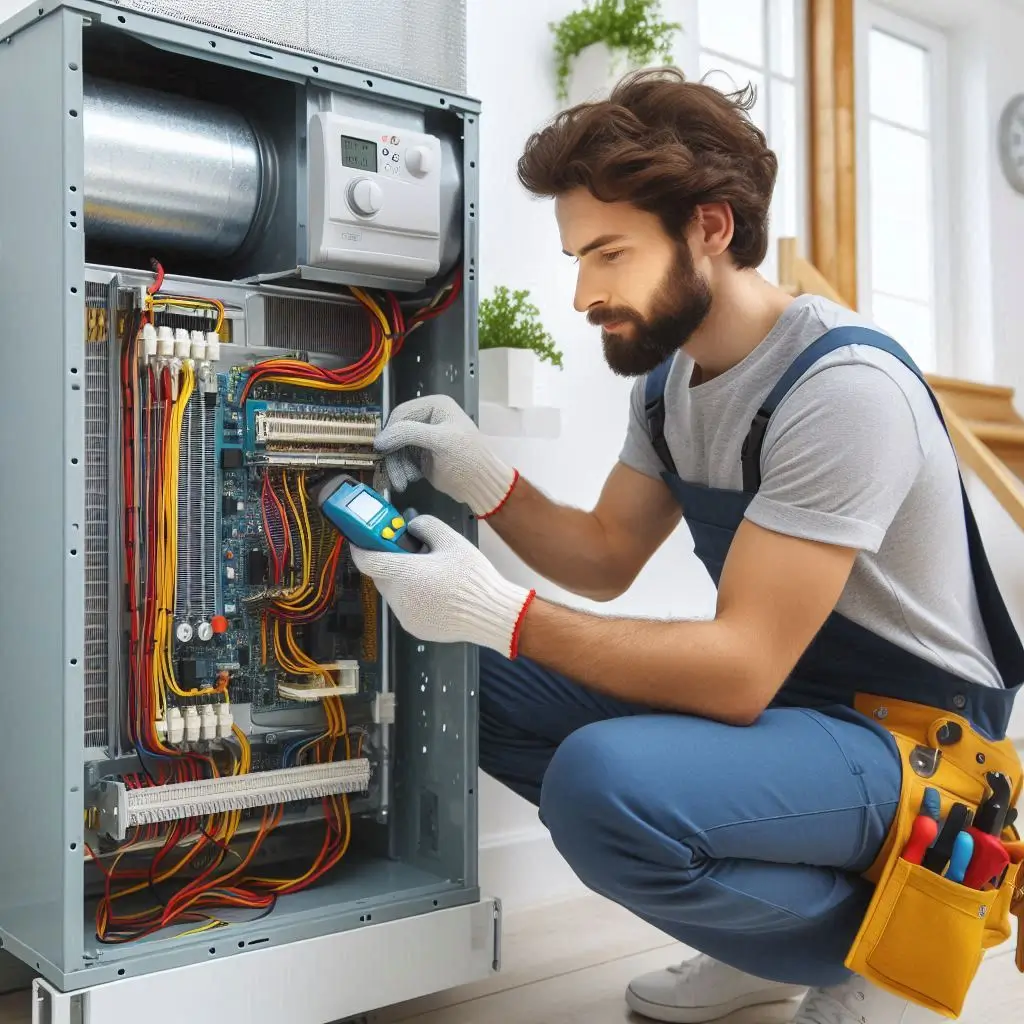
Importance of Routine Maintenance for Optimal Comfort and Efficiency
Routine maintenance is key to extending the lifespan of your HVAC system and ensuring it runs efficiently throughout the year. Neglecting regular maintenance can lead to decreased performance, increased energy costs, and even system breakdowns. Below are the key reasons why routine maintenance is essential:
-
Improves Energy Efficiency:
Over time, dirt, dust, and debris can accumulate in your system, causing it to work harder to heat or cool your home. Regular maintenance includes cleaning filters, coils, and ducts, which helps maintain energy efficiency. An efficient system uses less energy to provide the same level of comfort, leading to lower utility bills. -
Prevents Costly Repairs:
Routine maintenance allows HVAC technicians to identify minor issues before they become major problems. Regular inspections can detect wear and tear, leaks, or mechanical failures, preventing costly repairs and extending the life of your system. Fixing issues early helps you avoid inconvenient breakdowns and expensive emergency repairs. -
Enhances System Longevity:
Just like any other complex mechanical system, HVAC systems require regular attention to maintain optimal performance. Systems that are properly maintained can last significantly longer than those that are neglected. A well-maintained system can provide reliable comfort for up to 15-20 years, depending on the type and quality of the system. -
Maintains Indoor Air Quality:
HVAC systems play a critical role in maintaining indoor air quality. Dirty filters, coils, and ducts can harbor allergens, dust, and bacteria, negatively impacting your health. Routine maintenance includes cleaning these components, ensuring that your home’s air remains clean and healthy for you and your family. -
Ensures System Reliability:
A well-maintained HVAC system is less likely to experience unexpected breakdowns. Routine check-ups keep the system operating smoothly, ensuring that your home stays comfortable year-round without disruptions. Regular maintenance gives you peace of mind, knowing your system is prepared for both hot summers and cold winters. -
Boosts System Efficiency with Smart Technology:
Routine maintenance can also involve updating your HVAC system with the latest technology. Many modern systems come equipped with smart thermostats and energy-saving features that help you control your system more efficiently. Technicians can help you optimize these features during regular check-ups, improving system performance and user convenience.
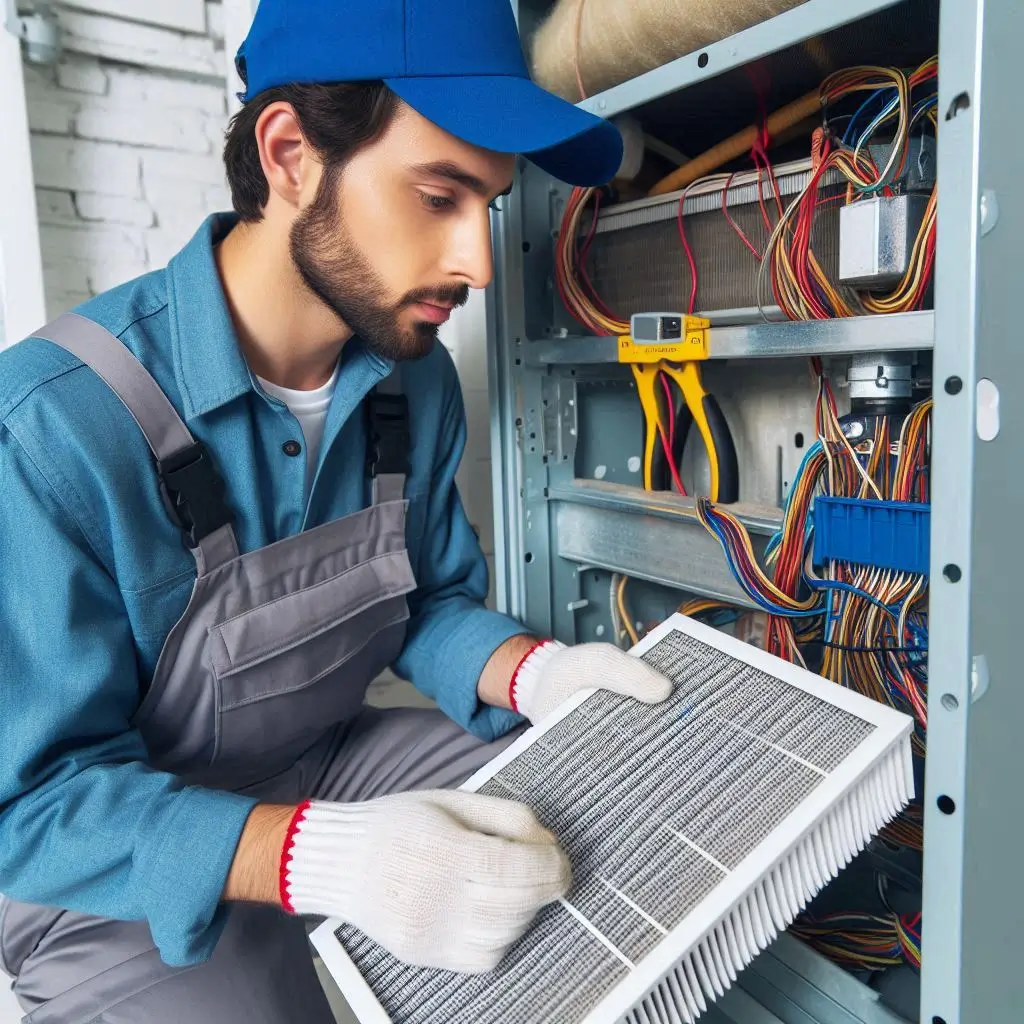
Common Issues with Comfort Heating and Cooling Systems and How to Troubleshoot
Comfort heating and cooling systems, like all mechanical systems, can encounter problems over time. When your HVAC system isn’t functioning properly, it can lead to discomfort in your home, increased energy costs, and unnecessary repairs. Fortunately, many common HVAC issues can be easily diagnosed and resolved with basic troubleshooting. In this section, we will discuss some of the most frequent problems with comfort heating and cooling systems and provide tips for fixing them. Additionally, we will explain when it’s time to call a professional HVAC technician.
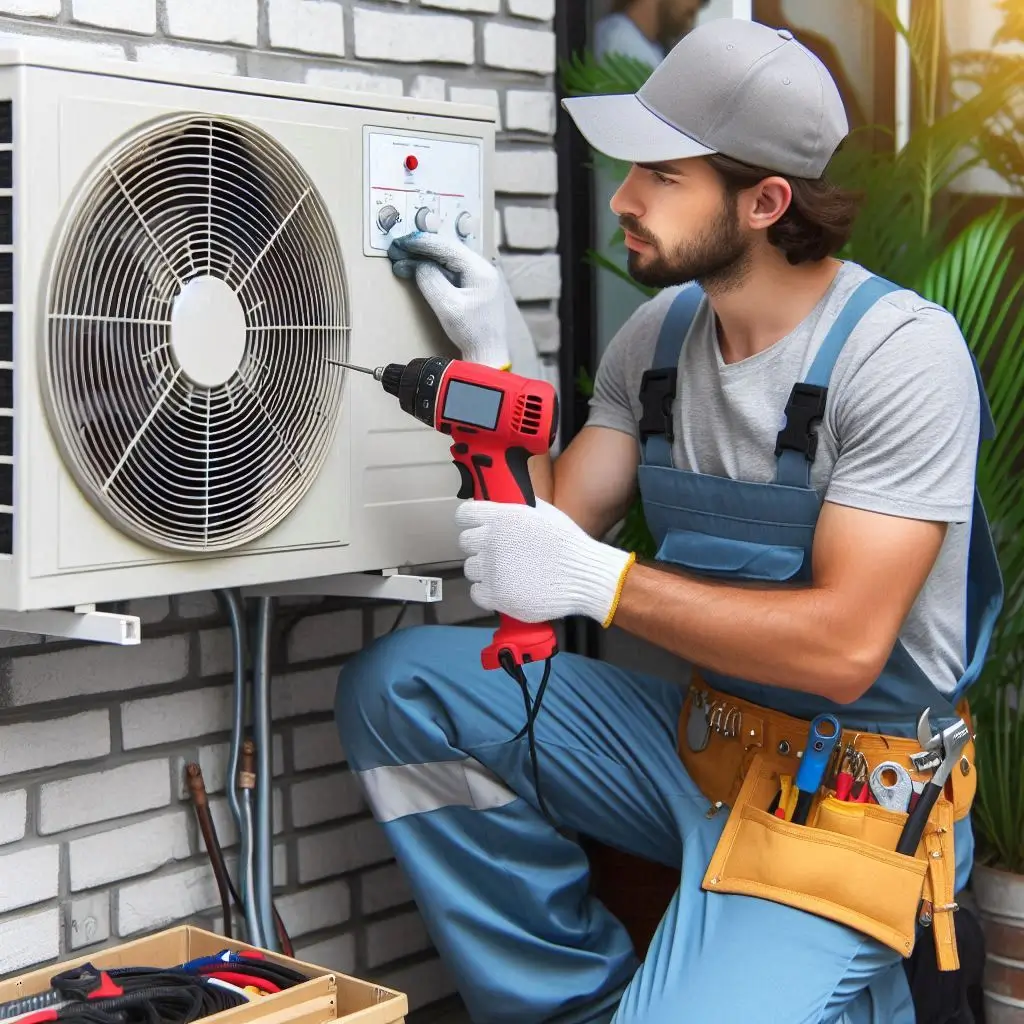
Identifying and Fixing Common Comfort HVAC Problems
HVAC systems can experience a variety of problems that hinder their performance. Here are some of the most common issues and their solutions:
1. No Heating or Cooling
One of the most common issues homeowners face is their system failing to heat or cool the home effectively. This problem can occur due to several reasons, including:
- Thermostat Settings: Ensure the thermostat is set to the desired temperature. Sometimes, the system simply needs to be adjusted.
- Tripped Circuit Breaker: If your system isn’t turning on, the breaker may have tripped. Check your electrical panel and reset any tripped circuits.
- Clogged Air Filter: A dirty air filter can restrict airflow, causing the system to overheat or freeze up. Regularly replace the filter to keep the air flowing freely.
Solution:
Check the thermostat settings, inspect the circuit breaker, and replace or clean the air filter. If these steps don’t resolve the issue, the problem might be more complex, such as a malfunctioning compressor or coil.
2. Inconsistent Temperature Control
If some rooms in your home feel hotter or colder than others, your HVAC system might not be distributing air evenly. Common causes of this issue include:
- Ductwork Leaks: Leaky ducts can cause air to escape before it reaches its destination, leading to uneven cooling or heating.
- Poor Insulation: Insufficient insulation can cause temperature imbalances in different areas of the home.
- Closed Vents: Make sure all vents are open and unobstructed to allow airflow.
Solution:
Inspect the ductwork for leaks and consider sealing them. Improve insulation in areas with temperature imbalances and ensure all vents are open.
3. Strange Noises
Unusual sounds from your HVAC system, such as rattling, squealing, or banging, can indicate that something is wrong. Common causes of noise include:
- Loose Parts: Loose screws, panels, or components can cause rattling sounds.
- Worn-Out Bearings: A squealing noise may come from a worn-out motor bearing.
- Clogged Condensate Drain: A clogged condensate drain can cause a gurgling or bubbling sound.
Solution:
Tighten any loose parts, lubricate the motor bearings, and clear any debris from the condensate drain. If the noise persists, it may be time for a professional inspection.
4. System Cycles On and Off Frequently
Frequent cycling, or short cycling, is a sign that your HVAC system is turning on and off too often. This can be caused by:
- Dirty Air Filter: A clogged filter restricts airflow, causing the system to overheat and shut down prematurely.
- Improperly Sized Unit: An incorrectly sized system may struggle to regulate the temperature properly, causing it to cycle too frequently.
- Thermostat Issues: A malfunctioning thermostat can send incorrect signals to the HVAC system, triggering frequent cycles.
Solution:
Replace the air filter, ensure your system is the correct size for your home, and inspect the thermostat for proper calibration.
5. Water Leaks Around the Unit
Water pooling around your HVAC unit is often a sign of a blocked or malfunctioning condensate drain. The drain is responsible for removing excess moisture produced during the cooling process. If the drain becomes clogged or broken, water can leak out.
Solution:
Clear the condensate drain line of debris. If the drain line is damaged, it will need to be repaired or replaced.
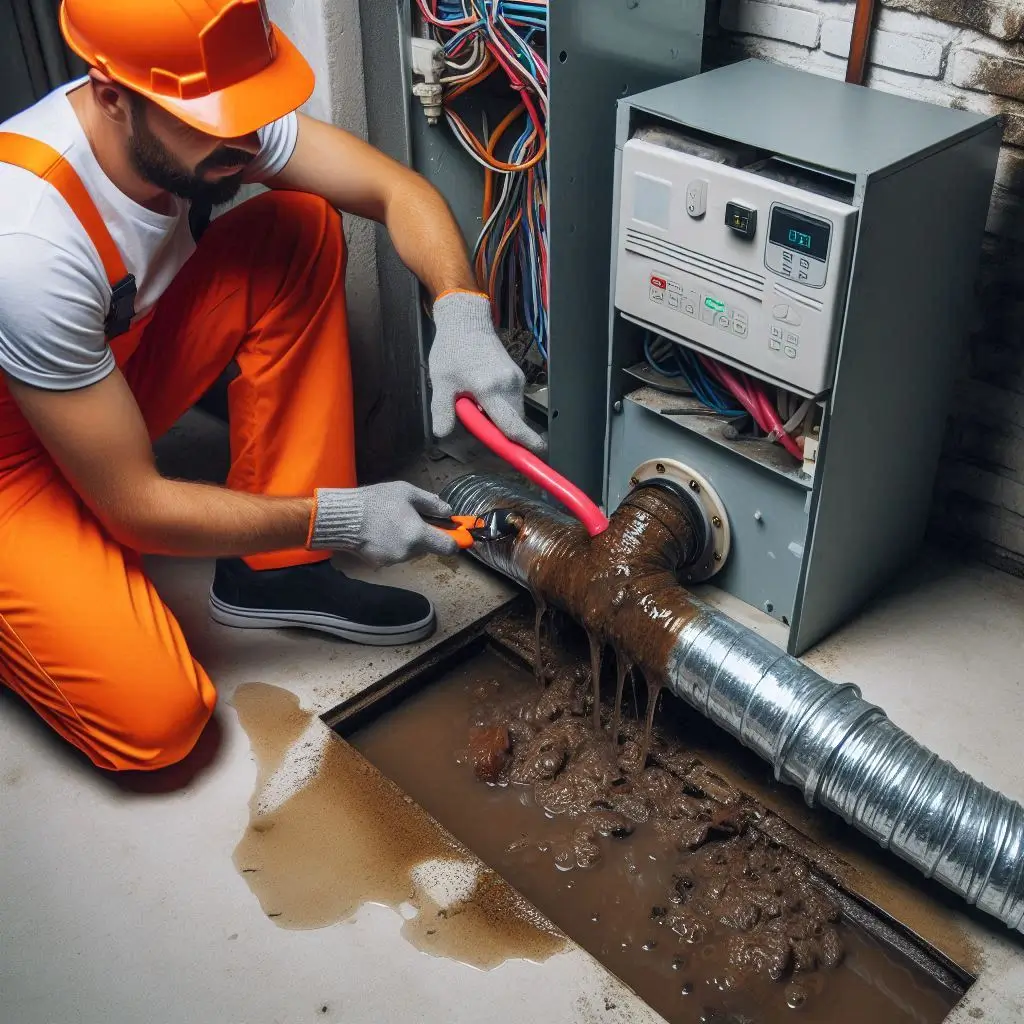
When to Call a Professional for Comfort Heating and Cooling Repairs
While many minor issues with your HVAC system can be fixed through basic troubleshooting, some problems require the expertise of a professional HVAC technician. Here are situations where it’s best to call for professional help:
1. Refrigerant Leaks
If your system is low on refrigerant, it could indicate a leak in the refrigerant lines. Leaks can damage your compressor and other components, and they require professional repair. Refrigerant issues are complex and should not be handled by homeowners.
2. Electrical Problems
HVAC systems involve complicated electrical components. If you notice problems with your system’s electrical wiring, fuses, or circuit breakers, it’s crucial to call a licensed technician. Improper handling of electrical components can be dangerous.
3. Inconsistent Airflow
If you have checked the ducts and vents and still experience inconsistent airflow, it could be a sign of a more significant problem, such as issues with the blower fan, the evaporator coil, or the compressor.
4. Frequent System Failures
If your HVAC system is breaking down frequently or requires constant repairs, it may be time to replace it. A professional technician can help you decide whether repair or replacement is the best option.
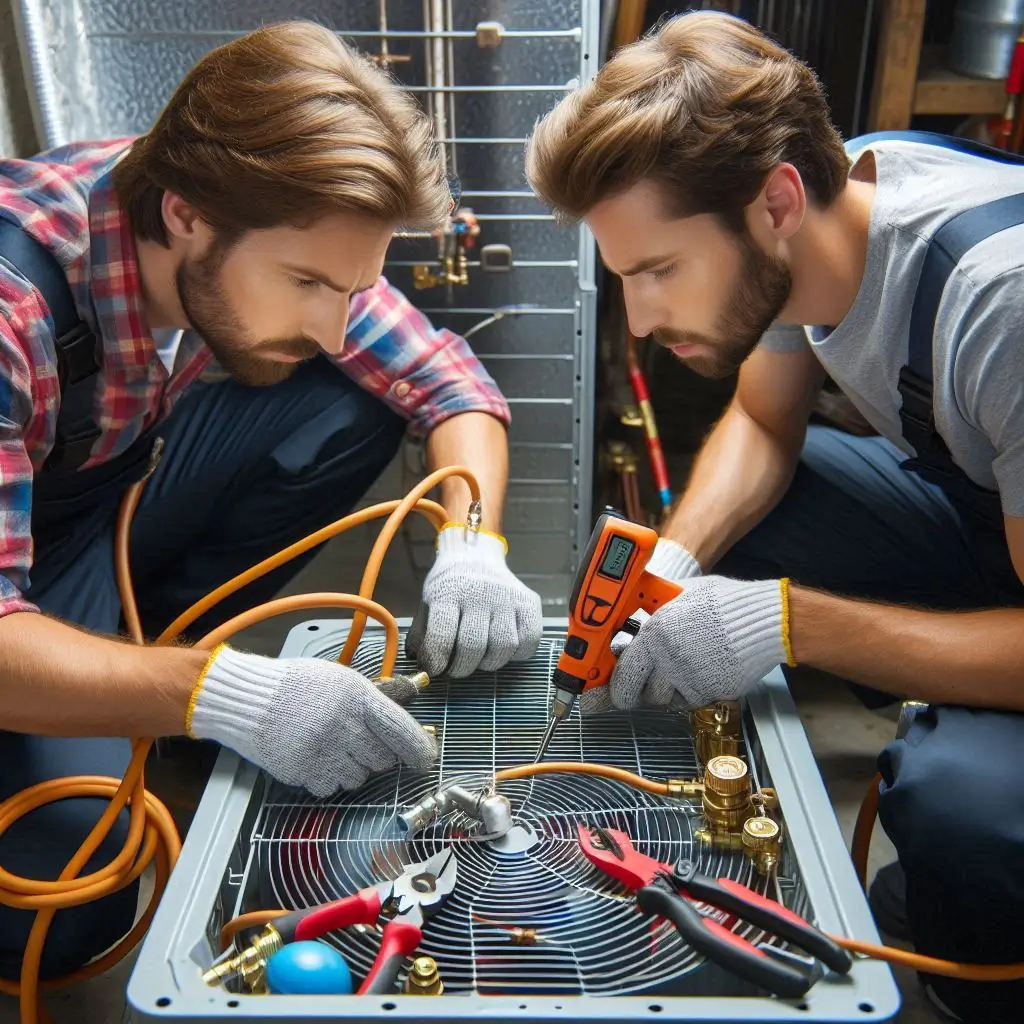
FAQ: Common Issues with Comfort Heating and Cooling Systems and How to Troubleshoot
Below are some frequently asked questions (FAQs) related to common issues with comfort heating and cooling systems and how to troubleshoot them. These answers aim to provide clarity on what might be happening with your HVAC system and when it’s time to seek professional help. Proper troubleshooting can help resolve many minor issues, saving you time and money.
1. Why is my HVAC system not turning on?
There are several reasons why your HVAC system might not be turning on, including:
- Tripped Circuit Breaker: A common issue is a tripped breaker, which can prevent your HVAC unit from powering on. If the breaker is in the off position, reset it and check if the system starts working.
- Thermostat Settings: Ensure the thermostat is correctly set. If it’s set to “off” or in a non-cooling/heating mode, your system will not activate.
- Dirty Air Filter: A clogged filter can restrict airflow, causing your HVAC system to overheat and shut off. Replace or clean the filter regularly to avoid this issue.
Solution:
Check the circuit breaker, adjust the thermostat settings, and replace or clean the air filter. If the system still doesn’t work, call a professional to inspect it.
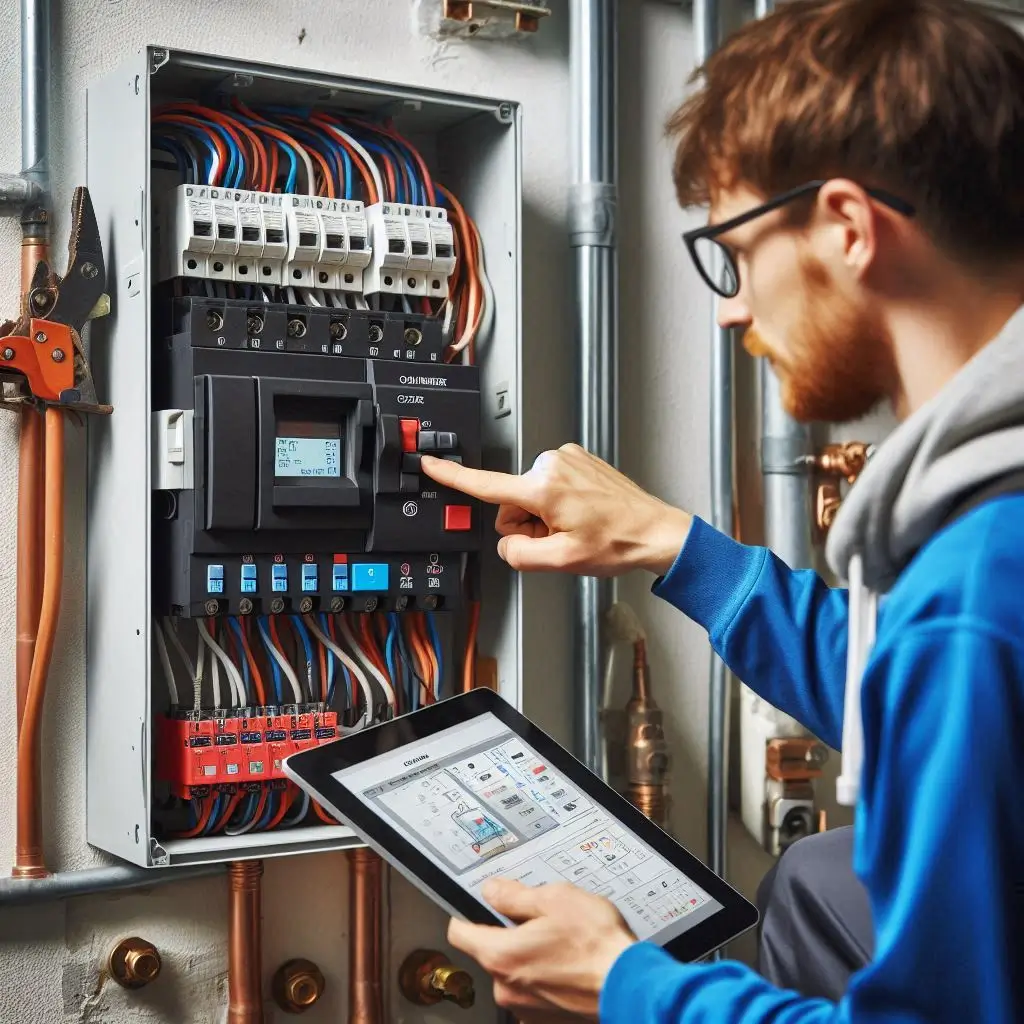
2. Why is my home unevenly heated or cooled?
Uneven heating and cooling are often caused by issues with airflow or air distribution. Some common causes include:
- Clogged or Blocked Vents: If vents are blocked by furniture or debris, air cannot circulate properly, resulting in hot or cold spots in your home.
- Leaky Ductwork: Leaks in your ductwork can cause air to escape before it reaches your rooms, leading to uneven temperatures.
- Poor Insulation: Inadequate insulation can also cause uneven temperature distribution, especially in larger homes or rooms with exterior walls.
Solution:
Ensure that vents are unobstructed, inspect your ductwork for leaks, and improve insulation in areas where temperature imbalances occur.
3. How do I fix strange noises coming from my HVAC system?
Unusual noises, such as rattling, squealing, or banging, can indicate problems with various components of your HVAC system. Common causes include:
- Loose Parts: Loose screws, panels, or internal parts can rattle or shake during operation.
- Worn-Out Bearings: If you hear a squealing or grinding noise, it could be a sign of worn-out motor bearings or a malfunctioning blower fan.
- Clogged Condensate Drain: A gurgling or bubbling sound might indicate a clogged condensate drain, which needs to be cleared to prevent water damage.
Solution:
Tighten any loose parts, lubricate or replace worn-out bearings, and clear the condensate drain of any debris.
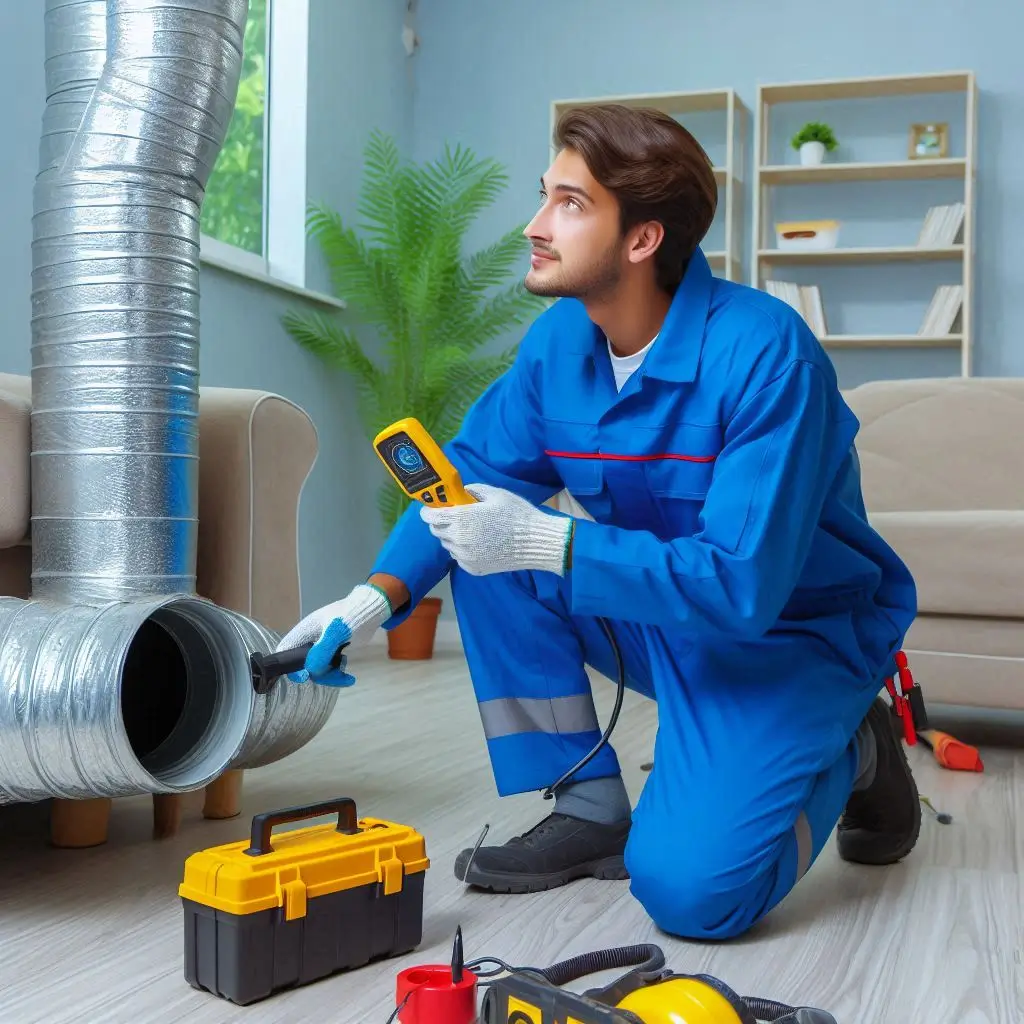
4. What does it mean if my HVAC system keeps turning on and off?
Frequent cycling, or short cycling, happens when your HVAC system turns on and off too quickly without running for an extended period. This issue can be caused by:
- Clogged Air Filter: A dirty air filter restricts airflow, causing the system to overheat and shut off prematurely.
- Improperly Sized Unit: An oversized HVAC unit might cool or heat the space too quickly, leading to frequent on-off cycles.
- Thermostat Malfunction: A malfunctioning thermostat can cause inaccurate readings, triggering unnecessary cycles.
Solution:
Replace the air filter, ensure the system is properly sized, and recalibrate or replace the thermostat if necessary.
5. How do I fix water leakage from my HVAC system?
Water leakage is often a result of a clogged or malfunctioning condensate drain. This drain is responsible for removing moisture produced by your HVAC system. If the drain becomes blocked, water can back up and leak out.
Solution:
Clear any debris or algae buildup in the condensate drain. If the drain is cracked or broken, it may need to be replaced. Regular maintenance can help prevent this issue.
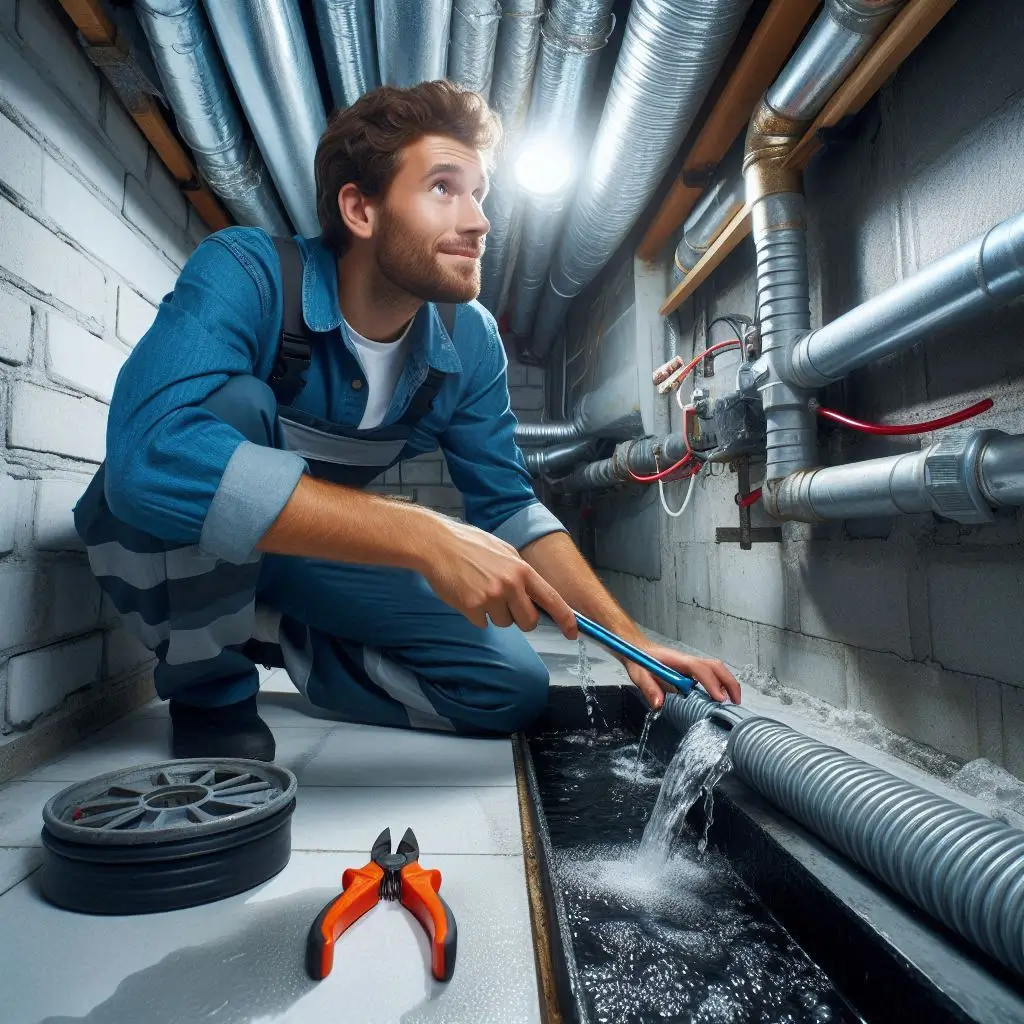
6. When should I call a professional HVAC technician?
While some HVAC issues can be fixed with simple troubleshooting, there are times when you need to call a professional. You should reach out to a licensed HVAC technician if:
- The system requires refrigerant or the refrigerant levels are low.
- You experience electrical problems with your system, such as malfunctioning wiring or tripped breakers that keep recurring.
- Your system requires complex repairs, such as fixing internal components like compressors, evaporator coils, or motors.
- Your HVAC unit is frequently malfunctioning despite your efforts to troubleshoot it.
Solution:
If you are unsure how to address the problem or if the system requires specialized repair, don’t hesitate to call a certified HVAC technician for an inspection and repair.
Conclusion
In conclusion, comfort heating and cooling systems play a vital role in maintaining a pleasant and consistent indoor environment. Understanding how these systems work, their benefits, and how to troubleshoot common issues can help homeowners make informed decisions about their HVAC systems. Regular maintenance, choosing the right system, and addressing problems early on are crucial for ensuring optimal performance, energy efficiency, and long-term savings. Whether you’re dealing with uneven temperatures, strange noises, or other concerns, proper care and timely repairs are key to keeping your home comfortable year-round. For complex issues, always consider consulting a professional HVAC technician to ensure your comfort heating and cooling system remains in top working condition.

